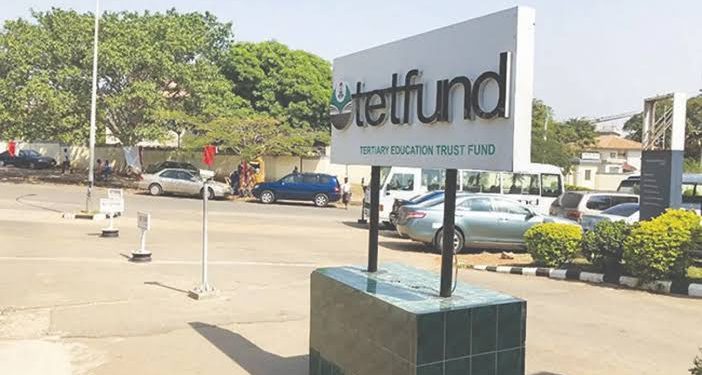Nigeria’s Tertiary Education Trust Fund (TETFund) has received a record N1.6 trillion allocation for interventions across universities, polytechnics, and colleges of education—its highest funding level since inception. The fund, drawn from the 3% education tax on company profits as mandated by the TETFund Act, will be deployed to strengthen education, healthcare training, energy infrastructure, and student support.
The announcement was made by Aminu Bello Masari, Chairman of TETFund’s Governing Board and former Governor of Katsina State, during a media briefing in Katsina on Sunday. Masari stressed that the interventions are demand-driven, with institutions submitting proposals for approval based on their needs and available resources.
Of the total amount, N460 billion—representing 40% of the fund—will go directly to projects across tertiary institutions nationwide. In each state, a university, a polytechnic, and a college of education have been selected to benefit from these allocations.
In a major boost for student access to higher education, N225 billion has been released to the Nigerian Education Loan Fund (NELFUND) to support the Federal Government’s student loan scheme for financially disadvantaged learners.
To address persistent power challenges on campuses, N70 billion will fund the development of solar and gas-powered generation facilities, reducing dependence on the unstable national grid. An additional N25 billion has been set aside for campus security upgrades, including street lighting and other safety measures.
Responding to Nigeria’s growing shortage of medical professionals, over N100 billion has been allocated to strengthen medical sciences training. In line with President Bola Tinubu’s directive to reverse the exodus of healthcare workers, three institutions in each geopolitical zone have received N4 billion each to expand infrastructure and training in medicine, nursing, pharmacy, laboratory science, and related fields. The aim is to double the number of healthcare professionals and improve service delivery nationwide.
Masari assured Nigerians that TETFund maintains a rigorous monitoring and evaluation framework, backed by independent consultants, to ensure that funds are used strictly for approved projects. He emphasised that interventions are carried out annually at state and zonal levels to guarantee fairness and measurable impact.
“This will greatly improve healthcare delivery nationwide,” Masari said, adding that with this historic allocation, TETFund is cementing its role as a key driver of national development, advancing education, healthcare, energy, and student empowerment in line with Nigeria’s broader socio-economic objectives.










